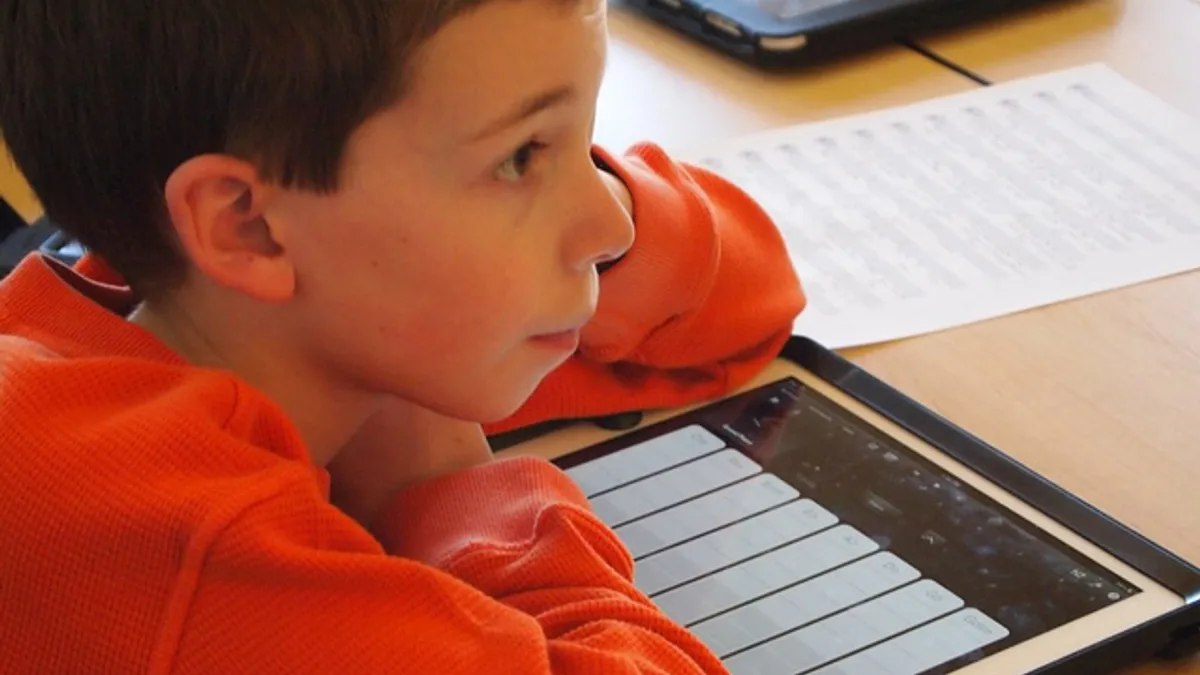Dive Brief:
- The National Assessment of Educational Progress (NAEP) will adhere to the national trend of tech-based testing by renting tablets to schools taking part in its randomized, yearly assessments.
- Pegged as "the nation's report card," the NAEP tests are given to sample student groups across the nation to assess how each state is doing academically.
- Since schools across the nation have different levels of tech access, the National Center for Education Statistics (which administers the test) believes renting the tablets will standardize the testing process.
- The NCES will contract Westat, a Maryland-based data collection company, to rent and deliver the tablets. The data will then be transferred electronically to Pearson, who NCES contracts to score the exams.
- After two-years of pilot tests, NCES hopes the tablets will be used nationally for the reading, writing, and math sections of the test by 2017.
Dive Insight:
While both the NAEP and many of the nation's Common Core-aligned assessments will be taking place online, the former differs in that the technology used will be standardized and rented to the participating schools. The Common Core taken online can be done with whatever computers the schools have.
Since NAEP is not given nationally to all students but rather to a sample group, renting the tablets made more sense than buying them, according to federal officials.
Still the exact cost of this new tech venture is still unclear — both Westat and the NCES declined to comment when asked by Ed Week. Since the tablets will have such important data on them, they will not simply be delivered by mail, but rather by a Westat employee. This, along with the renting of the tablets, is expected to be costly.
Since tablets are less common than computers, some believe the sheer novelty of the product will also get more kids excited to take the test.












